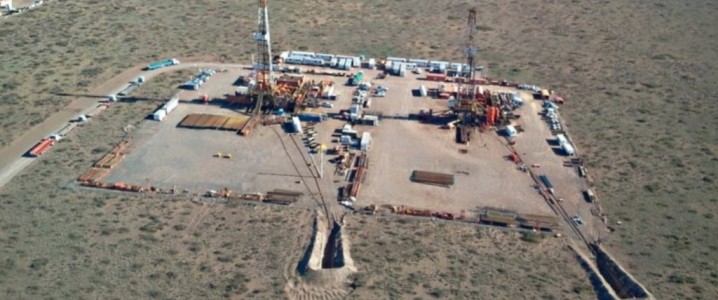There Is Light At The End Of The Tunnel For Argentina’s Oil Industry

Protests and civil dissent are once again sweeping across Latin America, a region infamous for its political instability and economic inequality. While Colombia’s security crisis is threatening the strife-torn country’s petroleum industry, Argentina’s hydrocarbon sector is recovering after striking healthcare workers lifted blockades in the Neuquen province at the end of last month. By early April 2021, striking healthcare workers demanding higher wages as they managed Argentina’s COVID-19 crisis, were blockading the sprawling Vaca Muerta shale oil and gas deposit in Neuquen. That province is at the heart of Argentina’s hydrocarbon sector - pumping over a third of Argentina’s total crude oil production and half of its natural gas. Neuquen contains the vast Vaca Muerta shale formation, which is recognized as the world’s second-largest shale gas deposit, holding 16 billion barrels of oil and 308 trillion feet of recoverable natural gas. The EIA estimated that only around 4% of the shale oil and gas play is developed, while S&P Platts believes that less than 10% of the Vaca Muerta is in full-scale development. This lack of development is preventing the shale formation from reaching its potential despite exploration, development, and production activities having commenced nearly a decade ago. Prior to the roadblocks, Argentine government data (Spanish) showed crude oil and natural gas output was steadily climbing. March 2021 oil production averaged 496,871 barrels daily, which was 12% higher than a month earlier although 4% lower compared to the same month in 2020. Natural gas production fell by 0.06% month over month and almost 10% year over year to 719,966 barrels of oil equivalent daily.
The blockades prevented fuel and other supplies from reaching oil industry operations in the Vaca Muerta, which is seen by Buenos Aires as a silver bullet for Argentina’s chronic economic woes, slowing development, and production. There were signs that before the healthcare workers’ strike, oil industry operations in the Vaca Muerta were returning to pre-pandemic levels. Data from S&P Global Platts shows that by March 2021 there were 733 fracturing stages, which was a new record exceeding the March 2019 peak of 712 and 7% greater than the 685 stages reported a month earlier. While health workers have lifted the blockades, there are signs that they had a marked impact on operations in the Vaca Muerta and Argentina’s economically crucial hydrocarbon production.
While Buenos Aires has yet to release April 2021 oil industry data, hydrocarbon production in Latin America’s third-largest economy is expected to decline for that month because of the blockades mounted by healthcare workers. According to oil industry estimates, reported by Argus Media, the roadblocks immobilized 45 drill rigs and cost the industry at least $25 million. The latest Baker Hughes rig count, which is a reliable de-facto indicator of oil industry activity, shows there were 33 operational rigs at the end of April 2021 or six less than a month earlier. That it is the lowest rig count since December 2020, illustrating the impact the health worker roadblocks had on oil industry operations in the Vaca Muerta. This indicates hydrocarbon production for April 2021 will fall compared to the first three months of the year where it averaged just over 1.2 million barrels of oil equivalent per day. Those events will only slow the development of the Vaca Muerta which the national government views as a panacea for Argentina’s myriad economic afflictions.
Before the pandemic and the latest political turmoil in Argentina, the petroleum industry was alarmed by Peronist Alberto Fernandez winning the presidency in 2019. There were fears that under a Peronist President that there would be a return to heavy-handed regulation, in a country that is a perennial meddler in energy markets, and that oil nationalism would reemerge. In response to growing petroleum industry concerns, which were magnified by the March 2020 oil price crash and COVID-19 pandemic, Buenos Aires has focused on favorable regulatory reform for the economically crucial industry. This is particularly important in light of the debt crisis national oil company YPF faced earlier this year because of the 2020 sovereign debt default and restructuring. President Fernandez announced in a speech to congress(Spanish), earlier this year, that his government was focusing on energy sector reform which is designed to attract additional urgently required investment and boost production as well as exports. By mid-April 2021 Argentina’s energy minister stated the government was drafting a bill to introduce further incentives for oil companies which would ultimately lead to higher oil and natural gas production. According to the minister, that bill was set to go before Congress in early May 2021. Among the proposals considered were establishing an oil price floor and ceiling, which would reduce the impact of weaker prices on energy companies operating in Argentina while preventing an oil bull market from roiling economic growth.
There are signs that Argentina’s burgeoning oil boom is gaining momentum, particularly with Brent trading at $67 per barrel - well above the Vaca Muerta’s average breakeven price of $45 to $50 per barrel. The recent turmoil which interrupted operations in the Vaca Muerta, which was only a short-term glitch impacting April 2021 production, appears to have ended. For as long as oil prices remain high exploration and development activities as well as production will keep growing.




